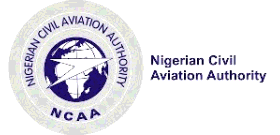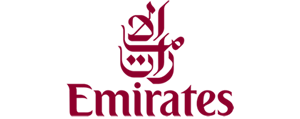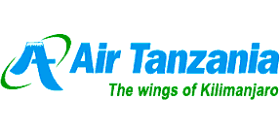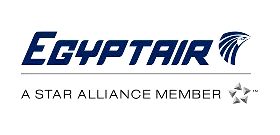Nigeria Cracks Down: Airlines Must Process Passenger Refunds Within 14 Days

The Nigeria Civil Aviation Authority (NCAA) has issued a stringent directive to all domestic airlines, mandating an immediate halt to the practice of informing passengers that ticket refunds may take up to four weeks to process. This decisive action underscores the NCAA’s commitment to safeguarding air travelers’ rights and bolstering consumer confidence within Nigeria’s burgeoning aviation sector. The core of this regulatory intervention is the NCAA’s firm insistence that airlines strictly adhere to the mandatory 14-day window for refund processing, as explicitly stipulated in Part 19 of the NCAA Regulations 2023. By reasserting this crucial rule, the authority aims to eliminate any ambiguity and ensure a standardized, equitable approach to passenger compensation across the entire domestic market.
In recent months, domestic airlines operating in Nigeria had faced increasing scrutiny for routinely communicating extended refund timelines, often stretching to four weeks, when passengers initiated ticket cancellations or were unable to utilize their tickets. The NCAA’s recent pronouncement, disseminated through its Director of Public Affairs and Consumer Protection, Mr. Michael Achimugu, leaves no doubt: the 14-day refund rule is legally binding and takes precedence over any internal policy an airline might have. Achimugu emphasized the necessity for unified adherence to national standards, stating, “There can’t be two captains-in-command on an aircraft.” His remarks also served as a clear reminder that airline operators are strictly prohibited from implementing conditions that contradict the established regulatory frameworks, thereby reinforcing the NCAA’s undisputed authority as the primary arbiter of consumer protections within the aviation sector.
The NCAA’s directive actively empowers passengers by encouraging them to report any airline that continues to communicate a four-week refund period. Travelers are urged to forward such non-compliant correspondence directly to the Authority, which will facilitate prompt interventions and foster greater accountability from the carriers. This call to action not only strengthens the position of consumers but also signals the Authority’s firm resolve to enforce compliance through robust oversight mechanisms. For airlines, the message is unequivocally clear: any duplicative or conflicting refund policies will no longer be tolerated. The Authority perceives such practices as a direct challenge to its mandate and a disservice to the flying public, asserting that by curbing these discrepancies, it is actively promoting a more transparent, equitable, and efficient aviation sector where passenger interests are paramount in all operational policies.
This tightening of regulatory oversight carries significant implications for the broader African travel landscape. Given Nigeria’s position as a hub for some of the continent’s busiest domestic air routes, its regulatory standards frequently establish benchmarks for its regional counterparts. The NCAA’s unwavering stance on a 14-day refund window aligns seamlessly with international best practices and presents a commendable model for other African regulators to consider emulating. For travel professionals across the continent, this shift necessitates a thorough recalibration of existing booking and advisory processes. Stakeholders must now ensure that all refund communications and procedures are fully compliant with the NCAA’s stringent requirements, thereby mitigating potential sanctions and preserving invaluable customer trust. This development also underscores the escalating importance of consumer protection within Africa’s rapidly expanding aviation sector, an area destined to gain even greater prominence as passenger volumes continue to surge and market competition intensifies.
Beyond merely a procedural update, the NCAA’s intervention serves as a powerful signal that industry credibility is intrinsically linked to strict adherence to statutory obligations. By enforcing a uniform standard across all operators, the Authority is proactively working to restore and build faith in domestic aviation—a critical factor as Nigeria and other African nations pursue ambitious growth targets within the travel and tourism sector. For airlines, this directive highlights the imperative to streamline and optimize their refund management systems. Efficient and transparent processing not only guarantees compliance but can also evolve into a unique selling proposition in a marketplace where exceptional customer service is increasingly a key differentiator. Adopting advanced digital solutions that automate refund requests and meticulously track timelines will be indispensable for carriers striving to meet the 14-day requirement without compromising operational efficiency.
Looking ahead, this invigorated regulatory oversight is poised to influence business models across the entire aviation value chain. As African airlines navigate the complexities of post-pandemic recovery, the unwavering drive for greater transparency and an unwavering focus on customer-centricity will undeniably shape future growth strategies. Concurrently, regulatory bodies will be expected to maintain exceptionally high standards of oversight, responding swiftly and effectively to any market abuses and consistently evolving consumer expectations. For the African travel sector, Nigeria’s proactive approach offers a robust template for judiciously balancing operational realities with the paramount imperative of robust consumer protection. As other countries modernize their own regulatory frameworks, the invaluable lessons learned from Nigeria’s experience will remain highly relevant—not only for airlines but also for hotels, tour operators, and digital platforms all seeking to build enduring trust and drive repeat business in an increasingly competitive environment. Ultimately, the NCAA’s landmark directive transcends mere refund timelines; it is fundamentally about constructing a resilient, unequivocally customer-focused aviation ecosystem that will serve as the indispensable backbone of Africa’s future travel ambitions. By demanding stringent accountability now, the Authority is meticulously laying the groundwork for a more dynamic, trustworthy, and sustainably thriving industry for many years to come.
You may also like...
Villa's Road Dominance: Rogers, Buendía Demolish Tottenham's Home Fortress

The Indian SUV market sees compact SUVs leading sales in FY2025, with Tata Punch topping the charts. Maruti Brezza 9 ...
Red Devils Triumph: Man Utd Shocks Liverpool, Maguire Seals Anfield Crisis
)
Manchester United secured a crucial 2-1 victory against Liverpool at Anfield, marking Ruben Amorim's first back-to-back ...
Box Office Shocker: 'Black Phone 2' Ends Blumhouse's Losing Streak, Rakes in $42 Million Globally

Black Phone 2" has delivered a much-needed box office victory for Blumhouse, opening to $42 million globally. The horror...
Sabrina Carpenter Electrifies SNL with Taylor Swift Parody and Raunchy Performance

Sabrina Carpenter delivered a memorable performance on Saturday Night Live, pulling double duty as host and musical gues...
Olivia Attwood Unleashes Savage Rant, Brands Former Pal a 'Blood-Sucking Tick'

Olivia Attwood has unleashed a scathing TikTok rant, likening a former friend to a 'blood-sucking tick' and a 'professio...
Lily Allen's Heartbreak: Suicidal Thoughts & Near Relapse Over David Harbour's Secret Affair Revealed

Lily Allen has opened up about the severe emotional impact of her separation from David Harbour, revealing suicidal thou...
Emirates Soars to Scandinavia with New Airbus A350 & Premium Economy Perks

Emirates has launched its Airbus A350 service to Oslo, introducing its highly anticipated Premium Economy class to Scand...
Nigeria Cracks Down: Airlines Must Process Passenger Refunds Within 14 Days

Nigeria’s Civil Aviation Authority has issued a strict directive to all domestic airlines, enforcing a mandatory 14-day ...




